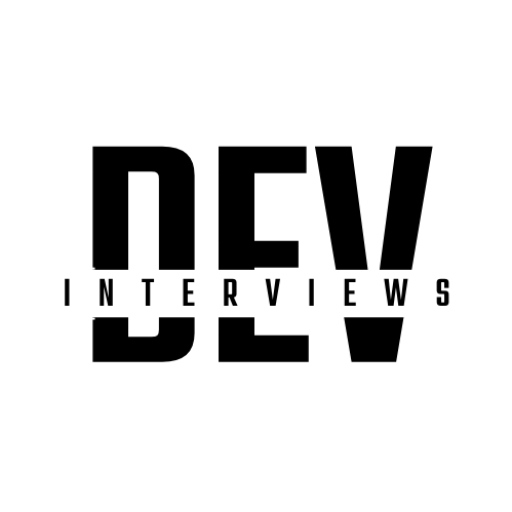Angular continues to evolve with each release, introducing new features and improvements to simplify front-end development and enhance application performance. With Angular 19, the framework has taken another big step forward, making it an essential topic for developers preparing for interviews. This article summarizes the official Angular blog post on Angular 19 while breaking down the key updates and their significance. If you’re preparing for an Angular developer interview, knowing these features will help you stay ahead of the competition.
What’s New in Angular 19?
Angular 19 introduces several key improvements that developers need to understand, especially if you’re gearing up for an interview. These updates focus on enhancing performance, developer experience, and ecosystem compatibility. Let’s explore the highlights:
1. Server-Side Rendering (SSR) Performance Enhancements
Angular 19 further optimizes Server-Side Rendering (SSR) for better performance. This version reduces JavaScript sent to the client, enabling faster page loads and better user experiences. Here’s why it matters in interviews:
- Interviewers often ask about Angular’s SSR capabilities. Highlight Angular 19’s focus on reducing client-side rendering overhead.
- Understanding SSR optimization is crucial for performance-critical web applications.
2. Full Control over Hydration
One of the most exciting updates in Angular 19 is the enhanced support for hydration, enabling developers to fully control how SSR-rendered apps rehydrate on the client side. Here’s how this benefits your preparation:
- Hydration improves SEO and performance by allowing apps to work seamlessly after SSR renders the initial HTML.
- Interviewers may ask about hydration’s role in Angular applications, so mentioning Angular 19’s improvements can make your answers stand out.
3. RxJS 7.8+ and Signals Support
Angular 19 updates its dependency on RxJS to version 7.8, providing improved compatibility with the latest reactive programming features. Additionally, Angular Signals—a new reactivity model introduced in Angular 16—continues to receive refinements. Key takeaways for interviews:
- Understand the significance of RxJS in Angular’s reactive programming model.
- Be prepared to discuss how Signals work and how they differ from RxJS observables.
For example, Signals allow developers to manage application state more intuitively, potentially replacing traditional state management libraries like NgRx in some scenarios.
4. Improved Dependency Injection System
Angular 19 introduces additional improvements to its Dependency Injection (DI) system, focusing on simplifying multi-environment builds and tree-shaking unused code. This feature is especially relevant for enterprise-scale applications:
- In interviews, emphasize how Angular’s DI system improves maintainability and code efficiency.
- Be ready to explain how tree-shaking contributes to reduced bundle sizes in production builds.
5. TypeScript 5.2 Support
Angular 19 now fully supports TypeScript 5.2, ensuring developers can use the latest features of the language. This alignment with the latest TypeScript release enhances type safety and enables developers to write more robust code. For interviews:
- Showcase your understanding of TypeScript and its integration into Angular development.
- Mention new TypeScript 5.2 features, such as decorators and expanded type annotations, which can improve code readability and maintainability.
6. DevTools Enhancements
Angular DevTools, a popular browser extension for debugging Angular applications, receives updates in Angular 19. It now provides better insights into hydration, signals, and dependency injection. Why this matters for interviews:
- Discuss how Angular DevTools can be used to debug performance bottlenecks or analyze change detection in applications.
- Showcase your familiarity with debugging tools, a valuable skill for any front-end developer.
7. Migration and Compatibility Improvements
Angular 19 makes upgrading easier by providing smoother migration tools and improved compatibility with existing projects. These enhancements lower the barrier to adopting the latest version. For interviews:
- Explain the importance of backward compatibility and how Angular ensures smooth upgrades between versions.
- Highlight Angular CLI’s migration tools as a way to manage upgrades efficiently in enterprise projects.
Why Angular 19 Matters for Interviews
Angular 19’s updates reflect the framework’s commitment to performance, reactivity, and ease of use. Here are some ways to leverage your Angular 19 knowledge during interviews:
- Showcase your familiarity with the latest advancements, proving you stay up to date with technology trends.
- When asked about performance optimizations, mention SSR improvements and hydration as examples of Angular’s focus on delivering fast, SEO-friendly apps.
- Use RxJS 7.8+ and Signals as discussion points for reactive programming and state management.
- Demonstrate your understanding of TypeScript 5.2 features and how they integrate into Angular development.
Preparing for Angular 19-Related Questions
To prepare effectively for Angular 19-related interview questions, focus on these areas:
- Review the official Angular 19 blog post for detailed technical insights.
- Practice explaining SSR, hydration, Signals, and RxJS in simple terms. Many interviewers value candidates who can break down complex topics.
- Build a small Angular 19 application to explore its new features in action. Hands-on experience will make your answers more compelling.
- Brush up on Angular CLI commands for migrations and configurations, as these tools are often discussed in interviews.
Conclusion
Angular 19 is packed with features that enhance performance, simplify application state management, and improve developer experience. By familiarizing yourself with these updates, you can confidently discuss Angular 19’s capabilities during your interview, demonstrating your expertise and commitment to staying current with the latest developments in the Angular ecosystem. Use this knowledge to showcase your skills and impress your interviewers!




